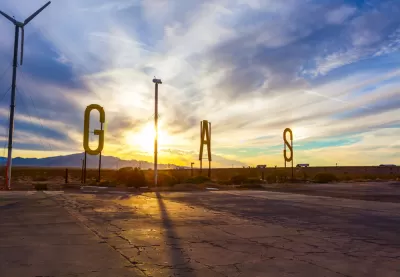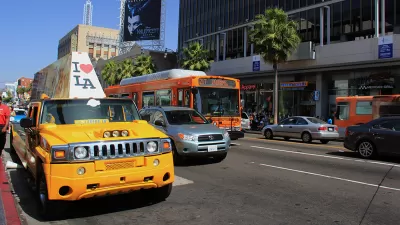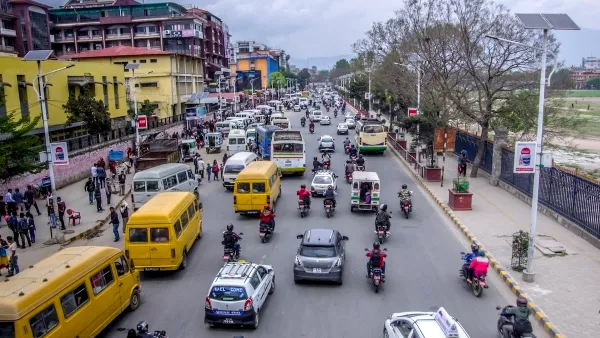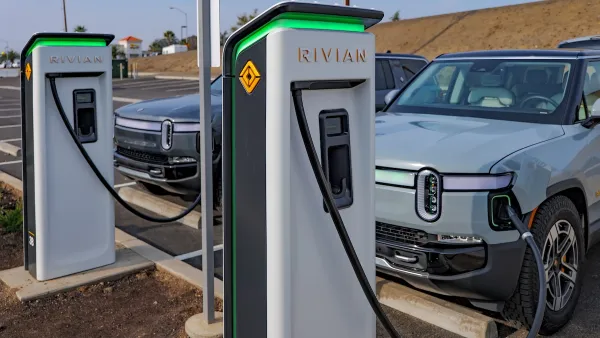With the state mandating a switch to electric vehicles by 2035, Petaluma is aligning its land use regulations with its climate goals.

The city of Petaluma, located in the North Bay Area in California, is the first city in the United States to ban the construction of new gas stations.
Kathryn Palmer reports that the city approved the decision in February, cementing a two-year moratorium on new gas stations. A unanimous vote by the Petaluma City Council on Monday, March 1 took the final step toward adoption. The decision is intended to contribute to the city's goals to achieve zero emissions by 2030, and piggybacks on a push at the state level to end the sale of gas-powered automobiles.
"It also streamlines processes for existing gas stations seeking to add electric vehicle charging stations and potential hydrogen fuel cell stations, with city staff underlining an urgency to support alternative fueling in order to meet state zero-emission infrastructure targets," reports Palmer.
The city of 60,000 people currently has 16 operational gas stations, with a gas station within a five-minute drive of every planned or existing residence in the city, according to the article. According to the article, a recent controversy over a planned gas station at a Safeway supermarket location contributed, but was not the sole reason, to the decision.
The city's status as the first city in the country to ban the development of new gas stations has been picked up by the regional and national media sources. Andrew Chamings reports on the story for SFGate, headlining the "first in the U.S." detail. Tim Levin frames the story as a step toward an all-electric future in a story for Business Insider. Steve Schrader picks up the story for The Drive, also headlining the "first" angle. And Jennifer A Kingston picked up the news for Axios, implying that Petaluma is the first of what will eventually be many cities to take similar action.
FULL STORY: Petaluma City Council moves to ban new gas stations

Maui's Vacation Rental Debate Turns Ugly
Verbal attacks, misinformation campaigns and fistfights plague a high-stakes debate to convert thousands of vacation rentals into long-term housing.

Planetizen Federal Action Tracker
A weekly monitor of how Trump’s orders and actions are impacting planners and planning in America.

In Urban Planning, AI Prompting Could be the New Design Thinking
Creativity has long been key to great urban design. What if we see AI as our new creative partner?

King County Supportive Housing Program Offers Hope for Unhoused Residents
The county is taking a ‘Housing First’ approach that prioritizes getting people into housing, then offering wraparound supportive services.

Researchers Use AI to Get Clearer Picture of US Housing
Analysts are using artificial intelligence to supercharge their research by allowing them to comb through data faster. Though these AI tools can be error prone, they save time and housing researchers are optimistic about the future.

Making Shared Micromobility More Inclusive
Cities and shared mobility system operators can do more to include people with disabilities in planning and operations, per a new report.
Urban Design for Planners 1: Software Tools
This six-course series explores essential urban design concepts using open source software and equips planners with the tools they need to participate fully in the urban design process.
Planning for Universal Design
Learn the tools for implementing Universal Design in planning regulations.
planning NEXT
Appalachian Highlands Housing Partners
Mpact (founded as Rail~Volution)
City of Camden Redevelopment Agency
City of Astoria
City of Portland
City of Laramie





























